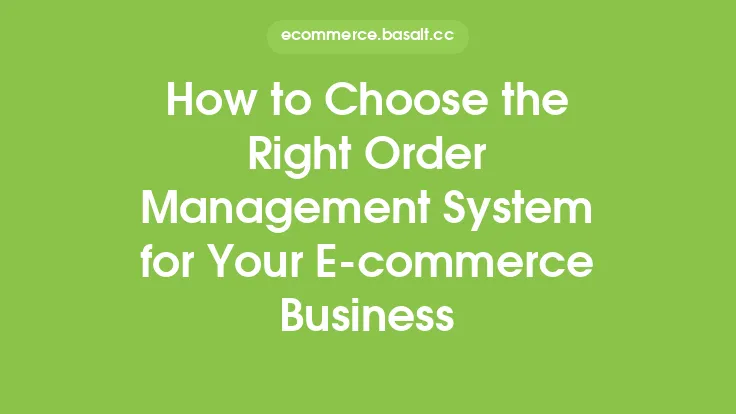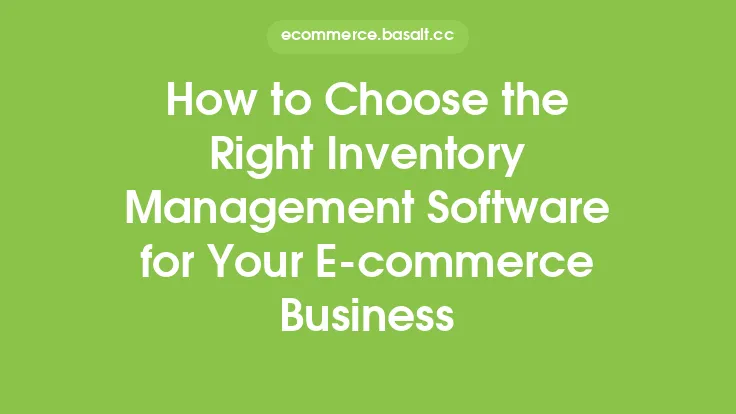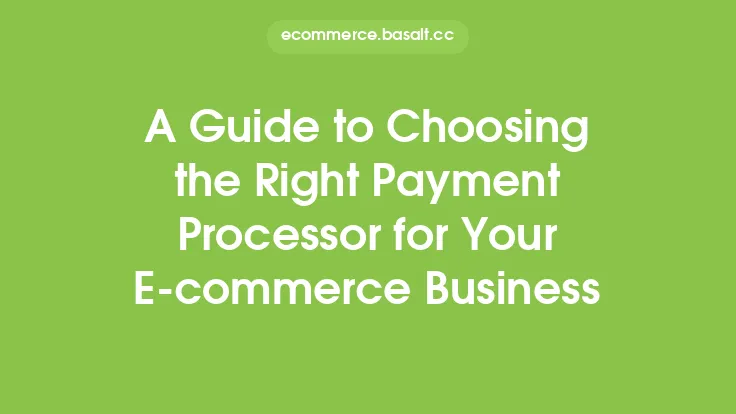When it comes to running a successful e-commerce business, one of the most critical aspects to consider is shipping. With so many shipping carriers to choose from, selecting the right one can be a daunting task. The right shipping carrier can make all the difference in getting your products to your customers quickly, efficiently, and cost-effectively. On the other hand, choosing the wrong carrier can lead to delays, lost packages, and unhappy customers. In this article, we will explore the key factors to consider when choosing a shipping carrier for your e-commerce business.
Understanding Your Shipping Needs
Before selecting a shipping carrier, it's essential to understand your shipping needs. Consider the type of products you sell, their weight, size, and value. If you sell fragile or perishable items, you may need a carrier that offers specialized handling and packaging. If you sell large or heavy items, you may need a carrier that offers freight shipping services. You should also consider your shipping volume, frequency, and destinations. Do you ship locally, nationally, or internationally? Do you have a high volume of shipments or just a few per week? Understanding your shipping needs will help you narrow down your options and choose a carrier that meets your specific requirements.
Evaluating Shipping Carriers
Once you have a clear understanding of your shipping needs, it's time to evaluate potential shipping carriers. Here are some key factors to consider:
- Reliability: Look for carriers with a proven track record of on-time delivery and low rates of lost or damaged packages.
- Cost: Compare the rates of different carriers to ensure you're getting the best value for your money.
- Services: Consider the types of services offered by each carrier, such as tracking, insurance, and signature upon delivery.
- Coverage: Make sure the carrier delivers to your desired destinations, including rural areas or international locations.
- Customer Support: Evaluate the level of customer support offered by each carrier, including phone, email, and online support.
- Integration: Consider the ease of integration with your e-commerce platform, including API connectivity and plugin availability.
Popular Shipping Carriers
Some of the most popular shipping carriers for e-commerce businesses include:
- USPS (United States Postal Service): Known for their affordable rates and wide coverage area, USPS is a popular choice for small to medium-sized businesses.
- UPS (United Parcel Service): Offering a range of services, including ground, air, and freight shipping, UPS is a good option for businesses with high shipping volumes.
- FedEx: With their fast and reliable delivery services, FedEx is a popular choice for businesses that need to get packages to their customers quickly.
- DHL: Specializing in international shipping, DHL is a good option for businesses that need to ship packages globally.
Negotiating Rates and Contracts
If you have a high volume of shipments, you may be able to negotiate rates and contracts with shipping carriers. This can help you save money on shipping costs and ensure a consistent level of service. When negotiating rates and contracts, be sure to:
- Compare rates: Get quotes from multiple carriers to compare rates and services.
- Consider volume discounts: If you have a high volume of shipments, you may be eligible for volume discounts.
- Negotiate contract terms: Be sure to carefully review and negotiate contract terms, including service levels, delivery times, and cancellation policies.
Tracking and Monitoring Shipments
Once you've selected a shipping carrier and negotiated rates and contracts, it's essential to track and monitor your shipments. This will help you ensure that packages are delivered on time and that any issues are resolved quickly. Consider using tracking software or services that integrate with your e-commerce platform to monitor shipments and provide updates to your customers.
Conclusion
Choosing the right shipping carrier for your e-commerce business is a critical decision that can impact your bottom line and customer satisfaction. By understanding your shipping needs, evaluating potential carriers, and negotiating rates and contracts, you can ensure that your packages are delivered quickly, efficiently, and cost-effectively. Remember to track and monitor your shipments to ensure that any issues are resolved quickly, and consider using tracking software or services to provide updates to your customers. With the right shipping carrier and a well-planned shipping strategy, you can provide a seamless and satisfying experience for your customers.





